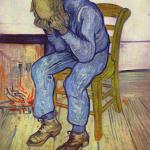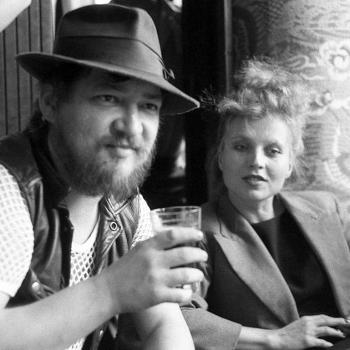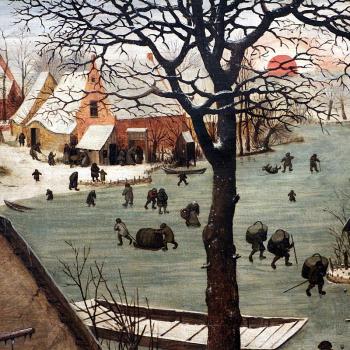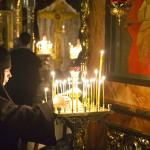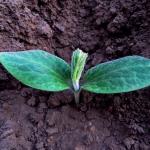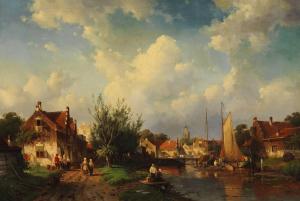
A few summers ago (it’s terrifying to me that it’s been that long), I was living in Freiburg in southern Germany. A friend and I took a train out of the city and found ourselves going the wrong way. We got off, but, since no new train would be coming by for some time, we ended up disembarking near a rural village and walking around for a bit. It was the sort of experience I can only imagine being possible in America back when newly-minted trains cut across the American Great Plains (it’s certainly not available in the Acela Corridor now). When we got off, there was a small bar before maybe a mile-long walk to the nearest village (which, I might add, had a beautiful Baroque-looking Catholic church). The landscape, filled with farmland, stretched before us as we trod our way through the summer heat.
I couldn’t help but think of this when I recently heard, and then read, about the destruction of a German village (and, I should add, its church) in the name of brown coal production. Brown coal, also sometimes known as lignite, is a less-energy-rich alternative to the (to us) more familiar black coal.
Germany finds itself in an odd situation. On the one hand, it’s a leader in alternative energy use. But it still relies fairly heavily on brown coal, a major ingredient in its so-called “economic miracle.” Only two regions in the country really mine the stuff, one in the East and one in the West, but the country keeps turning to the stuff to ease its transition to renewable energy sources. This may itself be a problem:
Lignite, that dark brown, brittle material which once fueled Germany’s economic miracle, should really be obsolete in a world that claims it wants to end its reliance on fossil fuels. Nevertheless, 100,000 tons are dug out of the ground just beyond Zimmer’s garden fence every day. And each year, 170 million tons of brown coal are mined in Germany and used to produce almost a quarter of the country’s total electricity output.
Yet the once vital energy source has become something of a burden in the age of new technologies. Decarbonization is the term sometimes used to describe Germany’s transition to renewable energy, according to which the country wants to rely on wind and solar energy rather than on fossil fuels. Yet brown coal is hindering this progress. The electricity it produces exerts downward pressure on prices and makes natural gas-fired power plants unprofitable. Natural gas, though, was supposed to bridge the gap until a functioning system for renewables, including distribution and storage, could be established.
The outgoing government didn’t manage to put an end to lignite production. The open-cast mines continue expanding, consuming everything in their paths. One of the most recent victims is the A-61 Autobahn, which is to be moved by several kilometers to make way for mining operations – only to be rebuilt at its original site in 2035, once the Garzweiler II mine has eaten its way through the area. (Der Spiegel)
That last part is really what caught my eye. It’s not uncommon for companies to relocate entire villages (and then move them back!) just so their machinery can cut through the countryside and extract lignite. This is a long-term economic problem (since it’s very unclear if the companies will be able to pay for this; the piece from Der Spiegel suggests that many investors are banking on a state buyout in the end, since firms simply won’t have the money). But more than that it demonstrates something about global capital, something that we in America seem interested in ignoring.
We constantly debate the validity of terms like “global warming,” with even President Trump recently weighing in about the cold weather outside. This has always seemed somewhat silly to me, at least among Christians. Clearly, we, as created beings, are supposed to steward the earth. This comes very early in the Biblical canon:
God created mankind in his image; in the image of God he created them; male and female he created them. God blessed them and God said to them: Be fertile and multiply; fill the earth and subdue it. Have dominion over the fish of the sea, the birds of the air, and all the living things that crawl on the earth. God also said: See, I give you every seed-bearing plant on all the earth and every tree that has seed-bearing fruit on it to be your food; and to all the wild animals, all the birds of the air, and all the living creatures that crawl on the earth, I give all the green plants for food. And so it happened. God looked at everything he had made, and found it very good. Evening came, and morning followed—the sixth day. (Genesis 1:27-31)


